These reflections are a result of more than 40 years of ministry as a Roman Catholic priest. Most of these years I spent in the Diocese of Charlotte which covers Western North Carolina. Now I am retired, and live in Medellín, Colombia where I continue to serve as a priest in the Archdiocese of Medellín.
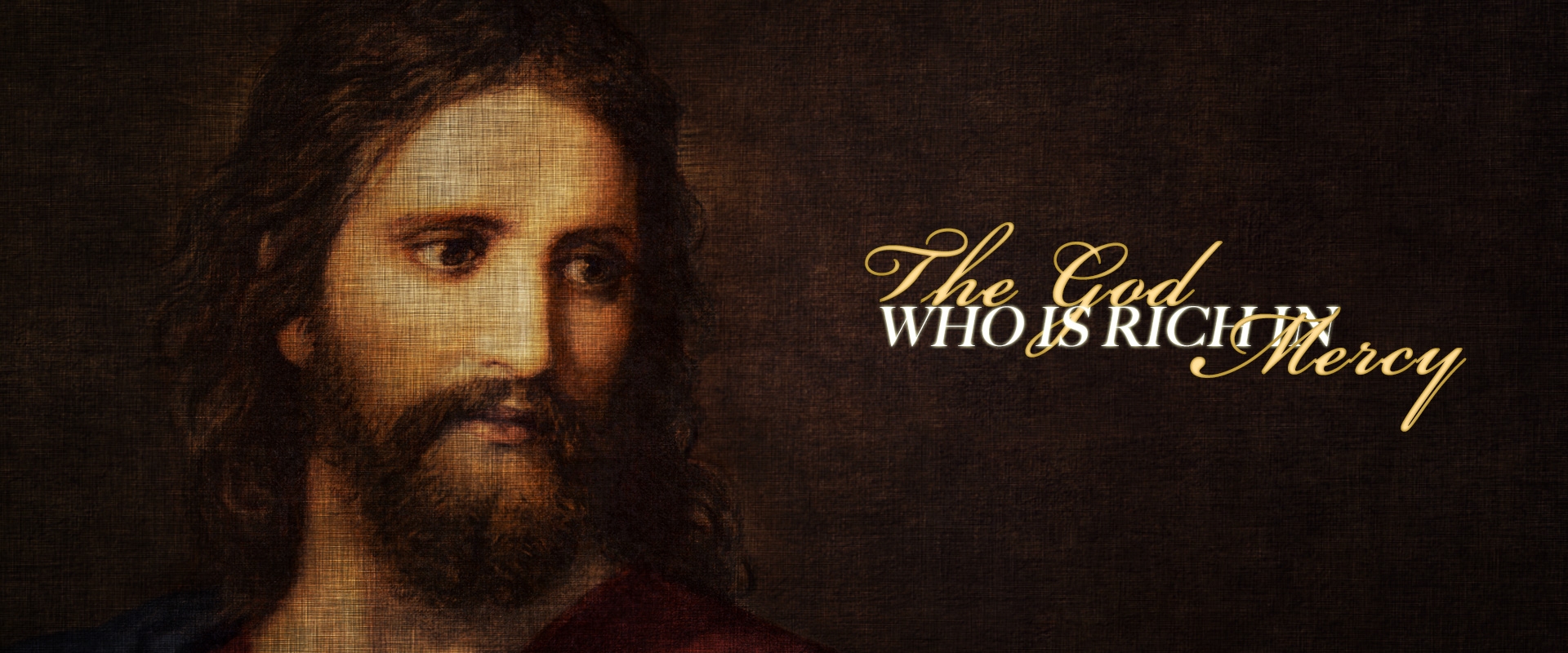
Now there was a sinful woman in the city
who learned that he was at table in the house of Simon, the Pharisee.
Bringing an alabaster flask of ointment,
she stood behind him at his feet weeping
and began to bathe his feet with her tears.
Then she wiped them with her hair,
kissed them, and anointed them with the ointment.
So I tell you, Simon, her many sins have been forgiven;
hence, she has shown great love.
But the one to whom little is forgiven, loves little.”
He said to her, “Your sins are forgiven. Go in peace.” (Lk 7:35-50)
Jesus was accused of being “soft on sinners.” Perhaps he is. “Your sins are forgiven. Go in peace.” Cornelius and Cyprian were both martyred and are celebrated together.
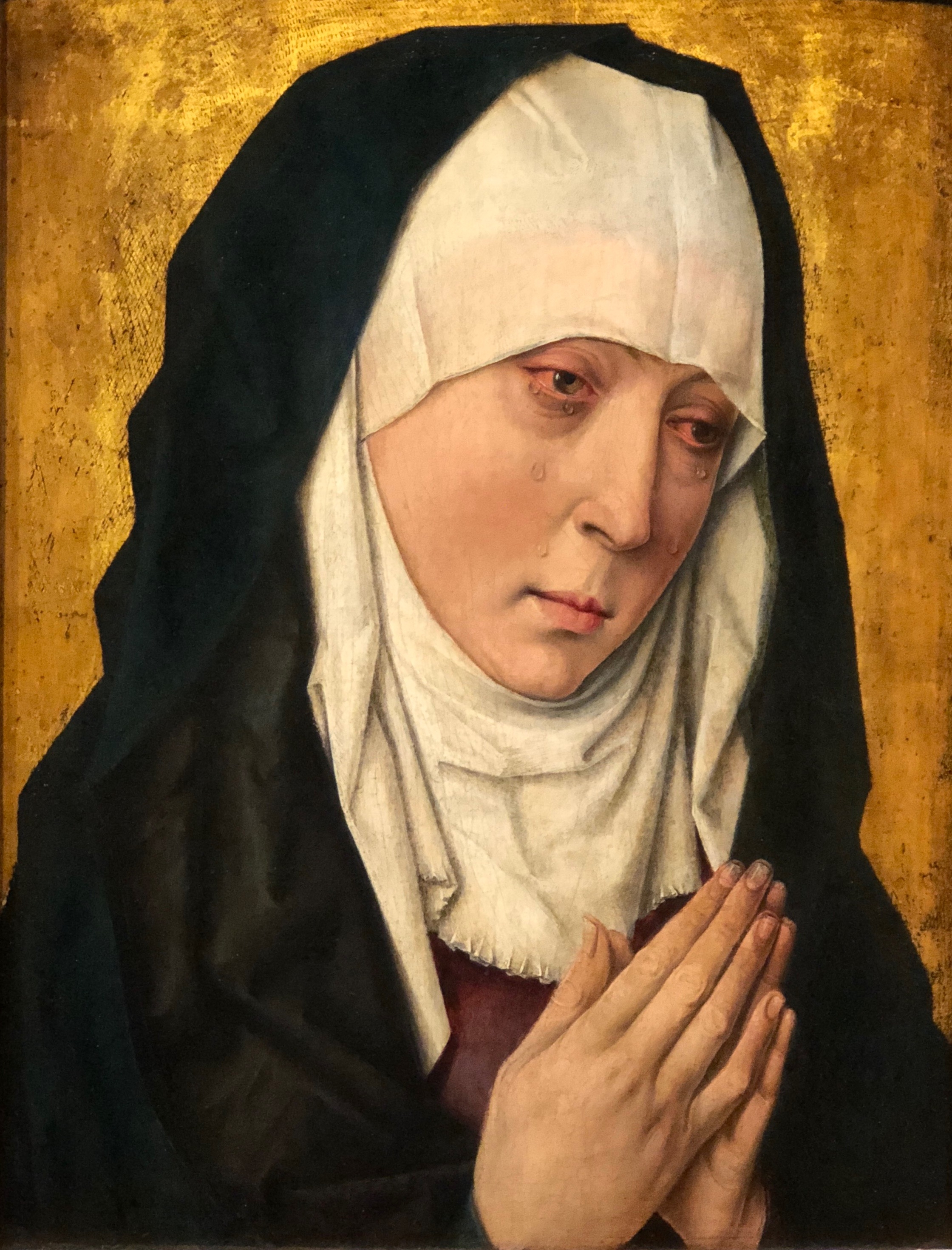
Standing by the cross of Jesus were his mother
and his mother’s sister, Mary the wife of Clopas,
and Mary Magdalene.
When Jesus saw his mother and the disciple there whom he loved
he said to his mother, “Woman, behold, your son.”
Then he said to the disciple,
“Behold, your mother.”
And from that hour the disciple took her into his home. (Jn 19:25-27)
The Octave of the Feast of the Birth of Mary is this feast of the Sorrowful Mother which is linked to yesterday’s feast of the Holy Cross. The church has always seen the Beloved Disciple as standing in for all of us, the beloved disciples of the Lord.
At the cross her station keeping,
Stood the mournful Mother weeping,
Close to Jesus to the last. (from the sequence hymn, Stabat Mater)
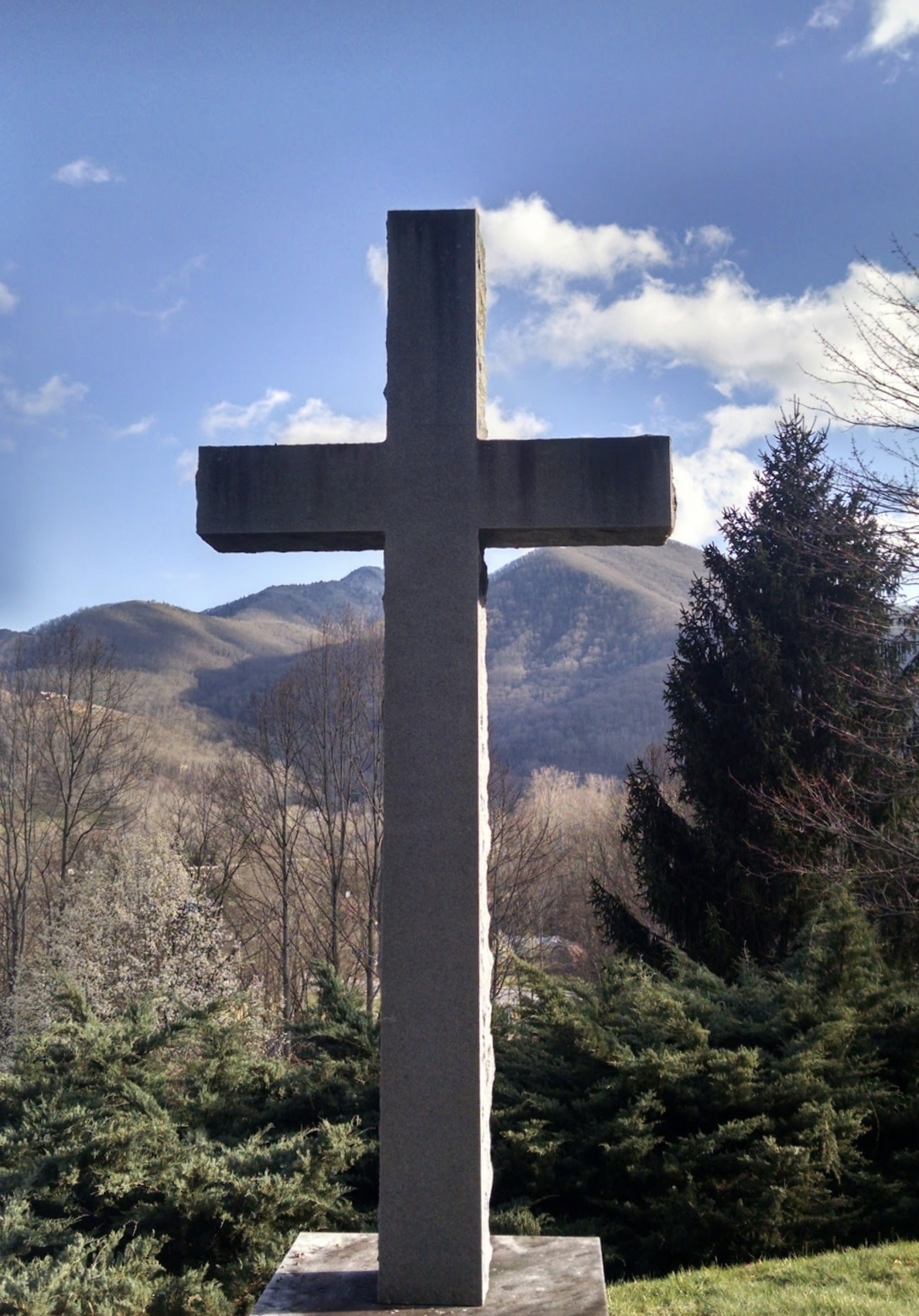
For God so loved the world that he gave his only Son,
so that everyone who believes in him might not perish
but might have eternal life.
For God did not send his Son into the world to condemn the world,
but that the world might be saved through him. (Jn 3:13-17)
If God loves the world and everyone in it so much, then perhaps we should too. The Son came not to condemn but to save. In most of Latin America this feast is celebrated on May 3.
We adore you, O Christ, and we bless you
because by your Holy Cross you have redeemed the world.
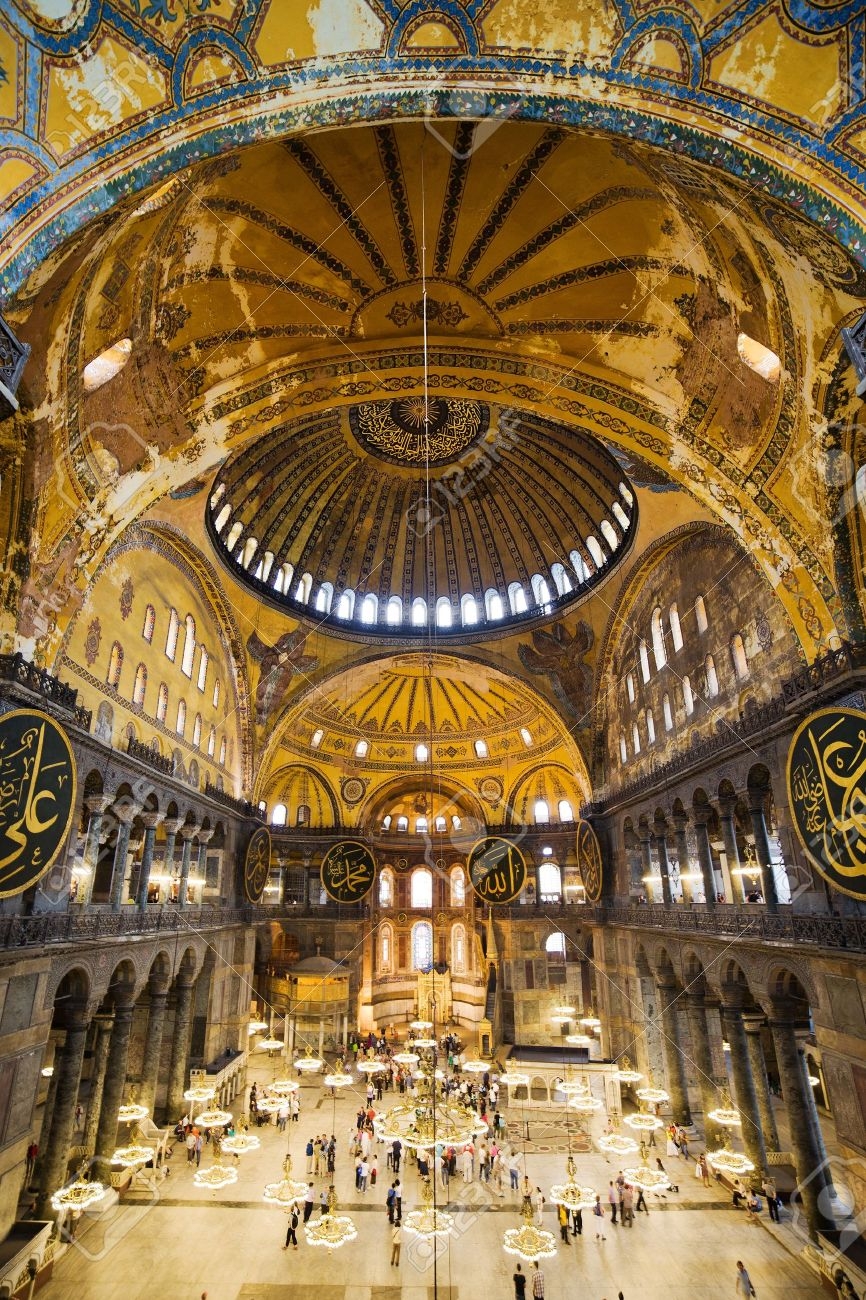
First of all, I ask that supplications, prayers,
petitions, and thanksgivings be offered for everyone,
for kings and for all in authority,
that we may lead a quiet and tranquil life
in all devotion and dignity.
This is good and pleasing to God our savior,
who wills everyone to be saved . . . It is my wish, then,
that in every place you should pray,
lifting up holy hands, without anger or argument. (1 Tim 2:1-8)
Prayer and thanksgiving is the essence of worship, lifting up our hands praising God. Saint John Chrysostom was archbishop of Constantinople. The emperor and his wife were in his parish. The empress and her friends wanted to gussy up the church with silk vestments and golden chalices to which John Chrysostom replied, “Give God the honor prescribed in God’s law by giving your riches to the poor. For God does not want golden vessels but golden hearts.” She got him exiled. Today’s picture is of Hagia Sophia, the cathedral in Istanbul where Saint John Chrysostom preached and prayed.
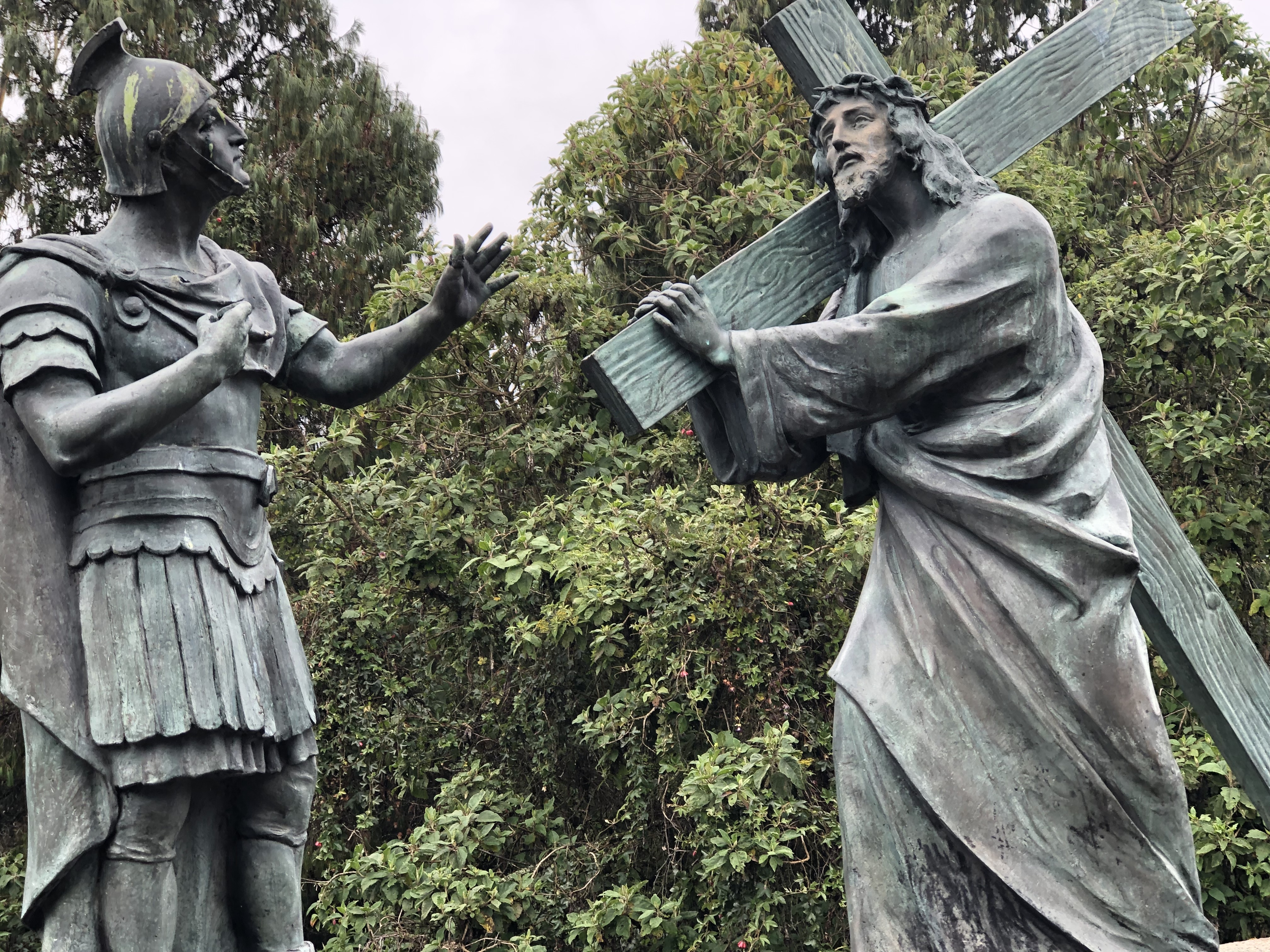
Whoever wishes to come after me must deny himself,
take up his cross, and follow me. (Mk 8:27-35)
The challenge of being a disciple. There’s an old hymn that says: I have decided to follow Jesus, No turning back, no turning back.



